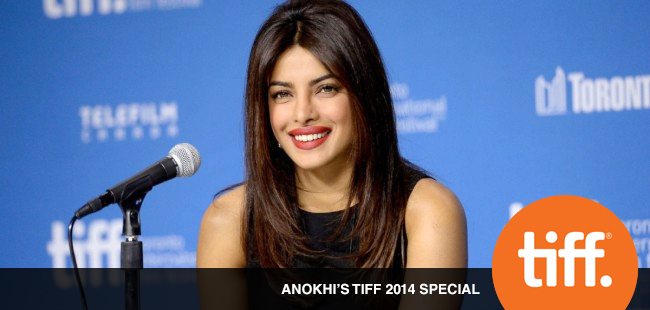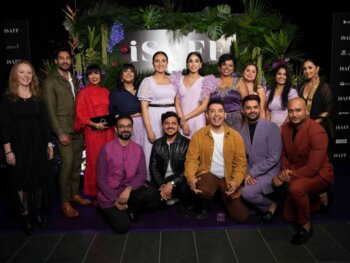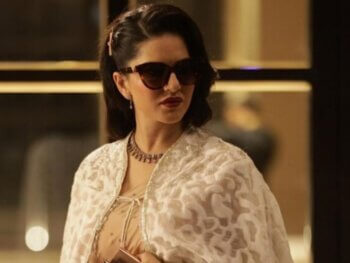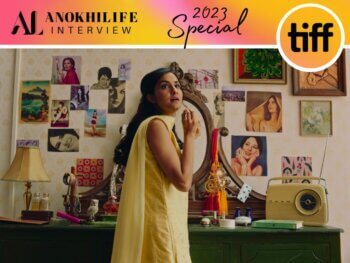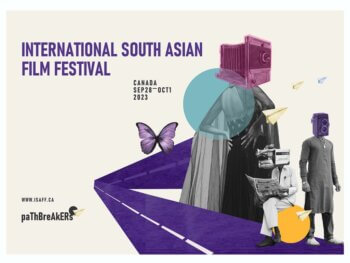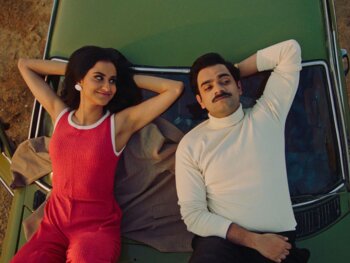Mary Kom dramatizes the rise of India’s most famous female boxer, packs a punch — in more ways than one.
“It’s really hard,” Priyanka Chopra explains at a TIFF press conference yesterday, when asked how she goes about choosing her roles now that her career is in full swing. “You have to come to me with a whammy.”
The film begins in 1991, when the title character finds a discarded boxing glove as a child. From there, she spends the rest of her life as a devout scrapper—first in the streets, defending a friend’s honour, and eventually in the ring—all the while battling not only her opponents, but disapproving parents, a corrupt boxing federation and oppressive cultural traditions fighting her way to becoming a five-time world boxing champ and Olympic bronze medallist in 2012.
The best biopics find a way to do justice to their subject’s accomplishments while also deconstructing the person behind the legend rather than deifying them. Mary Kom is not one of those films; but as far as unabashed hero worship goes, it’s serviceable.
The typically glamorous Chopra embodies a rough-and-tumble pugilist quite convincingly, in both body and spirit. She’s a cagey, ferocious live wire in and out of the ring, and a perfect spark for this movie’s engine. “I started filming the movie about four days after my dad passed away . . . but I think I channelled all my grief into this movie. And that’s what drove me,” Chopra explains at the conference. And indeed, her body is not just toned, but totally reshaped into that of a brawler; thanks to three months squeezing in four hours of exercise and boxing lessons per day, while filming 14 hours a day on another movie. “Every night, I would go back home and my mom would say, ‘Just get into the bathtub,’ and she would put salts, because it helps with the pain,” Chopra says. “My body would hurt in places I didn’t know could hurt.”
For his part, first-time director Omung Kumar does well to stage Kom’s matches as intimate, gritty and kinetic affairs.
“There’s nobody in the film industry that’s shot boxing,” Kumar explains, at the same conference. “So we developed our own style .“ Since all the boxers in the film were real, they were taught some acting skills. However, it looked fake in the first shots, so Kumar would shout that they need to actually hit. “Priyanka from there is shouting, ‘You come here and take the hit, see if she is not hitting’,” Kumar remembers. “Then when she saw it looked fake, she said, 'OK, hit me.'” Chopra quips in, “Sylvester Stallone did it in Rocky, I can do it.”
Alas, outside the ring, the film mostly falls flat. The script dutifully ticks off the milestones of Kom’s personal and professional life — a gradual courtship with her eventual husband (Darshan Kumaar), friction with her father, the career-redefining birth of her children — but it’s all very trite and predictable, the plot meandering and too often stagnating on dramatically inert material.
It feels like a banal, repetitive summary of a life, rather than a dynamic, focused exploration of one. The film runs just shy of two hours and you get the sense that a good 30 minutes should have been left on the cutting-room floor. As such, Mary Kom drags for long stretches, and as we reach the 90-minute mark, any early momentum is all but gone. Which makes the movie’s explosive ending all the more of a sucker-punch.
In our final trip into the ring (portraying Kom’s bid for a fourth world championship following the birth of her children), Kumar unleashes a thrilling, inventively shot bout that cross-cuts with a simultaneously unfolding situation involving her infant son.
It’s here that the film is at its most gripping, in terms of both action and personal drama. It’s the film’s sole truly indelible sequence, one that’s more thrilling, nuanced and indicative of what makes this woman worthy of her own biopic than anything else we’ve seen up to that point. It’s tough not to wish that more of the film could match its freshness and creativity.
Featured Image: thestar
Matthew Currie
Author
A long-standing entertainment journalist, Currie is a graduate of the Professional Writing program at Toronto’s York University. He has spent the past number of years working as a freelancer for ANOKHI and for diverse publications such as Sharp, TV Week, CAA’s Westworld and BC Business. Currie ...


















































